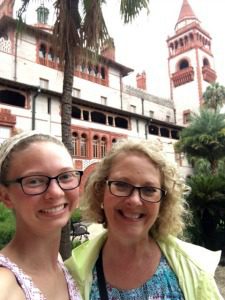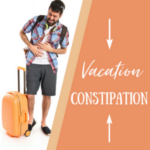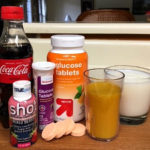This is part three of my journey as I go through the evaluation process toward becoming a Paired Donation Kidney Donor at the Mayo Clinic in Jacksonville, Florida. Here is part one, and two of my journey.
I thought I would be writing about “The Decision” by now, but I was wrong. Here is what’s been happening since my evaluation in May. Waiting for this decision helps prepare you for surgery like being pregnant for nine months gets you ready for your little bundle of joy…you get plenty of time to digest what was learned from the last visit to the Mayo Clinic.
I was sure I would be accepted as a donor, and it would be up to me whether I donated or not. That’s not true, I could be denied for not being medically suitable. As I believe in being thorough, I sought a variety of opinions and weighed all of my choices.
What My Doctor Said
When I told my primary care doctor I was going to Mayo to donate a kidney, she was concerned about what it would mean for me twenty or thirty years down the road. She could understand taking the risk for a family member, but not for someone else. She advised me to consider my choice carefully. She recommended I see a local kidney doctor who was not on a transplant team to get information about their experience with patients who have one kidney.
The Mayo Clinic psychiatrist agreed I should research and pay attention to any advice I get. She reminded me that I am working with a transplant team who want to save lives by transplanting more kidneys.
What does a kidney doctor NOT on a transplant have to say?
I made an appointment with a local kidney doctor to review my labs and talk about her experiences working with patients with only one kidney. I was surprised she spent almost an hour talking to me. She has seen many people do well with one kidney and had no concerns about my labs. I was more confident about donating when I left her office.
Could Bob really add more to his plate?
I still had a concern about how my husband, Bob, could add more to his already overflowing plate. He would be my caregiver for at least 2 weeks, possibly longer. Bob talked to people at work who are supportive of him taking off and making adjustments. He asked me to teach him how to do laundry the right way. When I met him he crammed all his dirty clothes into the washer together and washed in cold water. When we got married I took over the laundry (He says he has a “magic dresser”…one day it’s empty and the next it is filled with clean clothes). After surgery I won’t be able to lift more than 10 pounds for weeks. He’ll have to perform the “magic.”
After speaking to everyone, donating still feels like the right thing for me to do. After all this time and information gathering I am more sure than ever that I want to donate.
The transplant team decision
Finally, on June 20, I got the call from the donor coordinator reporting what the transplant team decided. I was deferred. When they reviewed my case they wanted more information before accepting me as a donor. This didn’t totally surprise me because the kidney doctor mentioned it when reviewing my labs in May.
I have a small amount of red blood cells in my urine and they want to know why. They also wanted me to have another test to be sure both of my kidneys filter properly. The tests I had already completed showed inconsistent results. The folks at the Mayo wanted a definitive answer and so did I.
To determine why I have blood in my urine, I saw a local urologist who tested my urine and looked inside my bladder. Everything was healthy. I learned that 9-16% of people have Benign Familial Hematuria, blood in their urine that is benign. Hopefully that’s what I have.
Next I have to have a kidney biopsy. They need to be sure that nothing is wrong with my kidneys and that taking one out will do me no harm. It is frustrating to wait (and I’m sure very frustrating for my recipient) but I really appreciate the care and thoroughness of the team.
To be sure my kidneys filtered well, I went back to Jacksonville to have an iothalamate test, the “gold standard” test. They injected a little dye which acts like a tracer. I provided a urine and blood sample 60 and 90 minutes later. I passed that test with flying colors.

Protect Your Kidneys
Uncontrolled diabetes and high blood pressure can cause kidney disease.
Know your A1C-Below 7.0 is recommended for most people.
Know your Blood Pressure - Below 140/90 is safest,
If your numbers are higher, take action to bring them down. I can help you know what to do! Contact me for help. Talk to your health care provider about adjusting your treatment.
“Kidneys like to be wet. Drink plenty of water.” - Sarah at Mayo Clinic
My nurse, Sarah, was awesome doing the iothalamate test and telling us why she loves working at Mayo Clinic!
- 26Shares
26



Leave a Reply